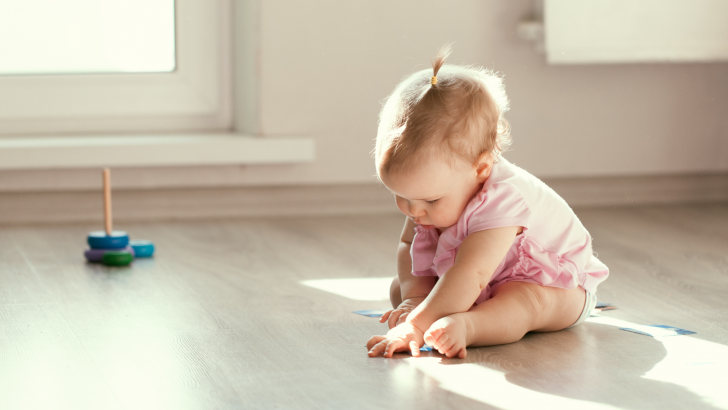When asked about starting families, more and more young people are admitting to not wanting 儿童.
This notion is not new, but it is becoming more common among new generations.
While older generations usually saw having children as something that was their goal, need, or even duty, modern couples do not see it as a necessary part of their future. Why is that?
Reassessing a Meaningful Life
The childfree movement stands in stark contrast to the notion that reproducing children is the only pathway to a fulfilling life.
Many individuals now understand that fulfillment can be achieved through love, creativity, social duty, spiritual development, or an affirmation and appreciation of love, rather than raising children.
People with some attachment to spiritual values prefer to live more authentically than being shackled like their parents. These individuals do not desire to suppress their personal energy to take on other roles.
However, they seek trajectories that bring them to actions grounded in their beliefs and passions. This is not selfish; this is being self-aware. There are a multitude of ways to experience a fulfilling life, and more humans are courageous enough to choose the one that is actually “for them.”
Financial and Mental Stability
Parenting, in the modern world, is extremely costly, demanding, and emotionally challenging. Many people prefer not to have children because they want stability, mental and financial, without the pressures of raising a child.
Stable individuals prefer to use their emotional and financial resources on personal dreams, meaningful travel, and a long-term vision of security, demonstrating their interest in living grounded and peaceful.
Having a child is a great deal of stress for them; those who choose to remain child-free desire to live a balanced and less-stressed life.
Non-parents care about emotional stability, or they believe they can love better, live calmer, and experience deeper feelings without the constant obligations of raising children. They are not stating that they cannot raise children; they just prefer not to.
Desire for Personal Identity and Freedom
More people want a life where they can explore possibilities without a long-term commitment to parenthood. They want the freedom of travel, creativity, learning, or simply shifting direction without having their child’s needs as the first consideration.
In a spiritual sense, this connects to the longing of your soul that wants to stay open, curious, and flowing, rather than restricted or conformed.
Many childless adults value identity, personal development, and impact, feeling they would be better contributing to life in this world if they were not parents.
They are not shirking responsibilities but rather choosing a different form of fulfillment. They want to feel free enough to create lives that feel expansive rather than contracted, lives based on growth rather than obligation.
Healing from Generational Trauma
What is perhaps surprising to many older generations is how many young adults choose childless living because they want to break cycles of pain, dysfunction, or trauma.
They recognize that when they become parents before healing themselves, they may be perpetuating the same trend.
This is profoundly spiritual, as this level of awareness indicates a level of honesty and authenticity to recognize and to take responsibility to resolve issues rather than to pass them along. They want to stop the burden rather than pass it along.
Many of the people choosing childless lives put in the work on themselves through therapies, growth opportunities, or inner work, believing the time and energy spent in the process of healing would be better utilized rather than being put in the process of raising a child while they themselves remain wounded.
This is not avoidance. It is self-awareness. Their choice is an expression of love, saving the next generation by not making a choice to create life until they have healed.
Shifting Relationships and Life Priorities
Modern relationships definitely look different now than they looked in the past. People marry later, focus on careers, and build relationships that are based on mutual effort and mutual experiences instead of previous family roles.
For many young people, having no children allows them to connect instead of complicating that connection. From a spiritual standpoint, it reflects an approach of living in harmony: choosing to be in a relationship that is not complicated with extreme urgency.
Couples build a deeper companionship and enjoy traveling, mutual hobbies, and comfortable routines in addition to healthier boundaries, and they base their lives on things they both want, rather than things that are automatic and, arguably, expected.
Parenthood is no longer a thing that is supposed to happen; it is an arrangement that either parent or both parents have decided on (to be fair). When both partners agree to remain childfree, that relationship is a relationship of choice and no longer a predetermined role.
A Desire to Contribute Differently to the World
Think about it: people who choose child-free living are usually passionate and have strong humanitarian, creative, or spiritual callings.
People want to help the world out beyond parenting: through art, activism, as a healer in society, community work, or development, or just living lightly on this planet. In a spiritual sense, this represents a broader calling.
Not everyone has to raise children to be valued; rather, they want to uplift the collective in another way through their energy, which couldn’t happen with children and other obligations.
Rather than procreating and contributing to the world with lineage, they are adding to the world through their impact. The choice of living child-free is a redirection of their soul’s purpose, and it is a form of contribution to the world, instead of adding to their own family.
Born and raised in Bosnia and Herzegovina. Ever since I was a little girl, my imagination knew no bounds. I remember vividly how I’d scribble down short stories, each page bursting with adventures and characters conjured up from the whimsy of my mind. These stories weren’t just for me; they were my way of connecting with my friends, offering them a slice of my fantasy world during our playtimes. The joy and excitement on their faces as we dived into my fictional realms motivated me to keep writing. This early passion for storytelling naturally evolved into my pursuit of writing, turning a childhood hobby into a fulfilling career.







